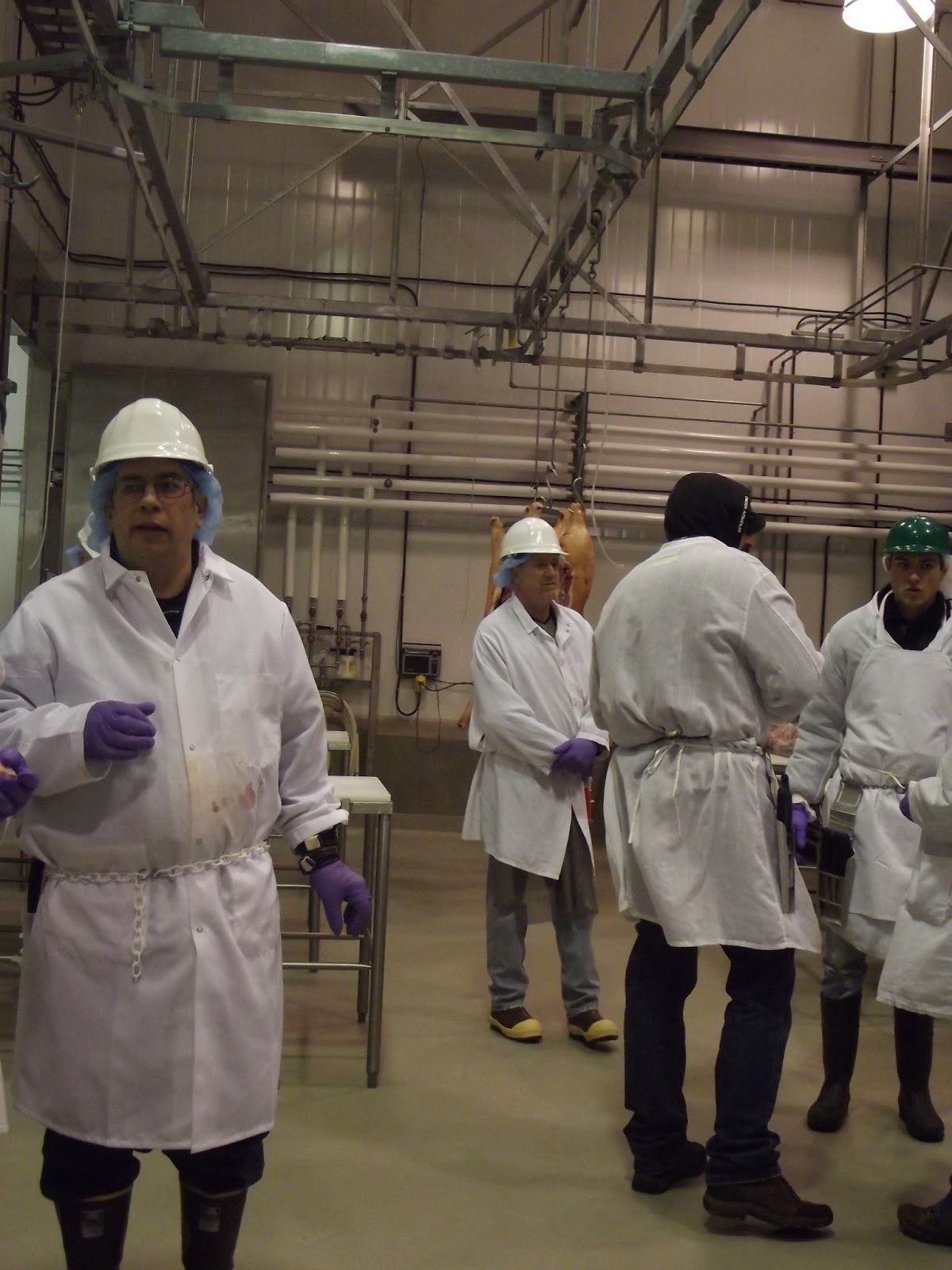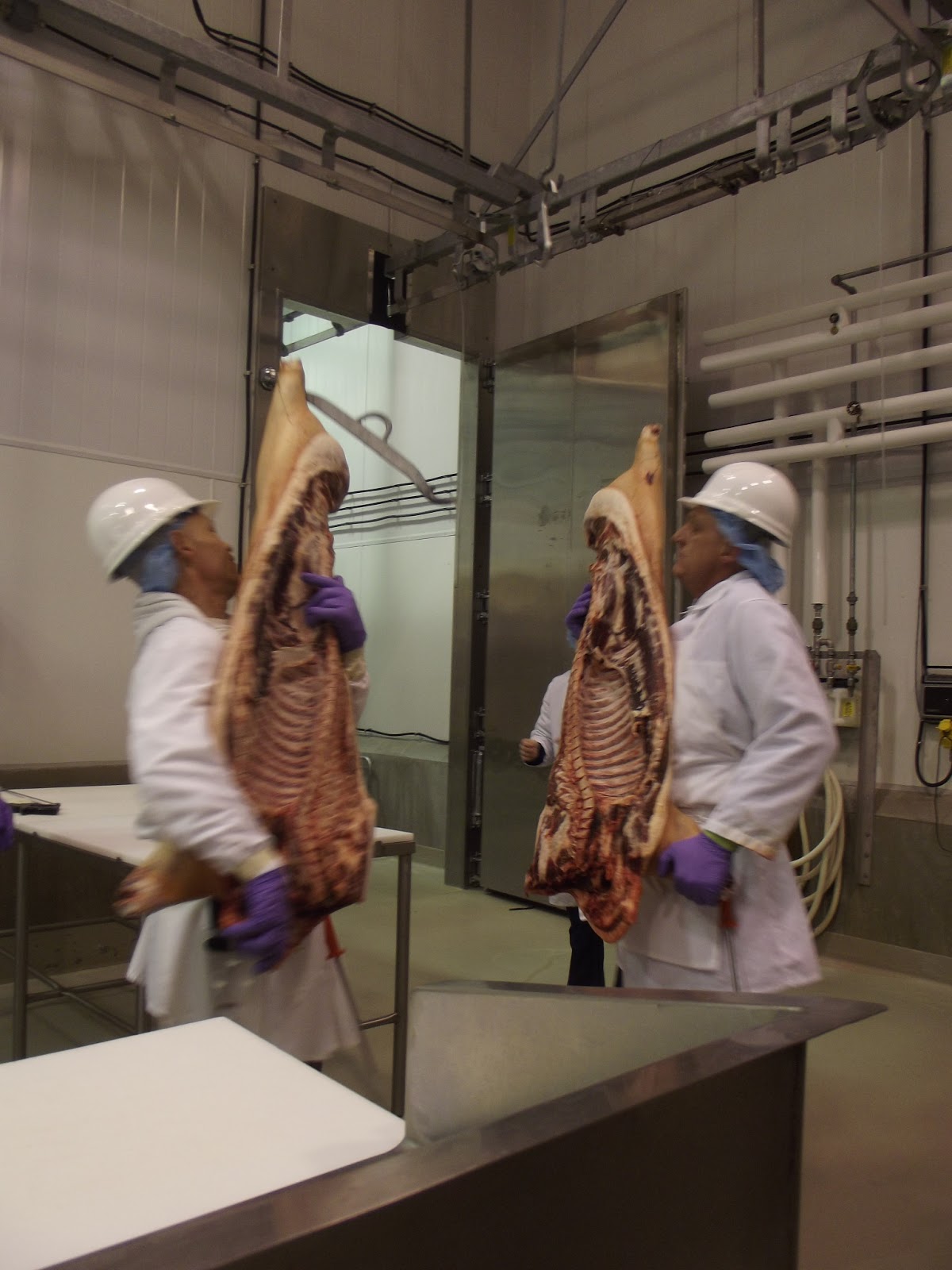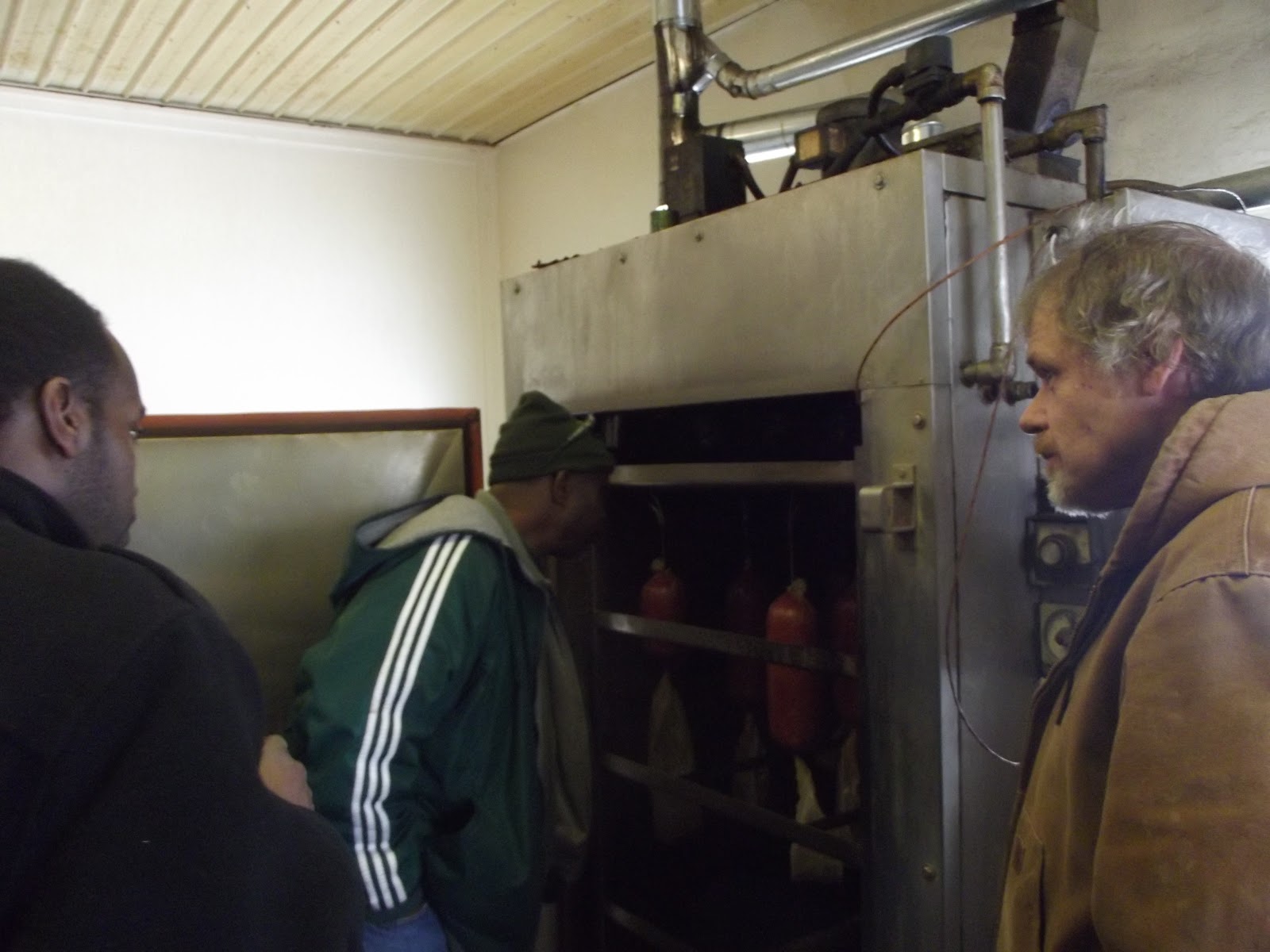2/19-22/13
The next few days we worked on improving our technique by taking it slow. I never realized how much was involved in cutting up meat. Knowing where to cut to make as much profit as possible was frustrating at times until we understood the different values of the pig. Once we understood things like the belly (bacon) sold for a lot more than other areas, we took extra care in our cuts.
 | |
| Slow and careful |
 |
We weren't the only ones in the lab. A few MSU students worked alongside us for a paycheck.
Though we may have been a disruption, these young people were kind and helpful in showing this old man everything they knew. When the end of the week rolled around, we had an evaluation of all we had learned about cutting pork. I'm happy to say we all passed and though we are still very inexperienced, we have a basic foundation to build our skills on. Next week we start on beef.


.jpg)












.jpg)






























